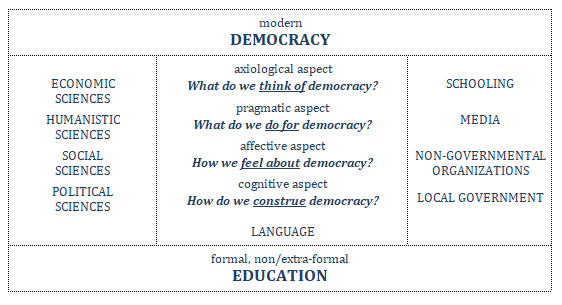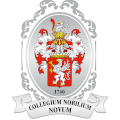’EDUCATION FOR DEMOCRACY’ MODEL
Our EfD Model is derived from the four fundamental premises:
- Democratic education needs to cover all – axiological, pragmatic, affective, and cognitive – educational domains and thus address the four respective questions: What do we think of democarcy?, What do we do for democracy?, How do we feel about democracy?, and How do we construe democracy?
- Democratic education needs to remain interdisciplinary and thus encompass different perspectives, offered by – inter alia – economic sciences, humanisties, sociology, and political science.
- Democratic education needs to take into account the wide educational appeal, that is education provided not only by schools, but also by media, non-governmantal organisations, and local government. Accordingly, democratic education needs to include both formal schooling as well as non-formal and extra-formal educational settings, with one’s family and closest surroundings also involved.
- Democratic education needs to assign a special status to language, which underlies the freedoom speech, open dialogue, intercultural diversity, fair communication, and multi-faceted diversity.

